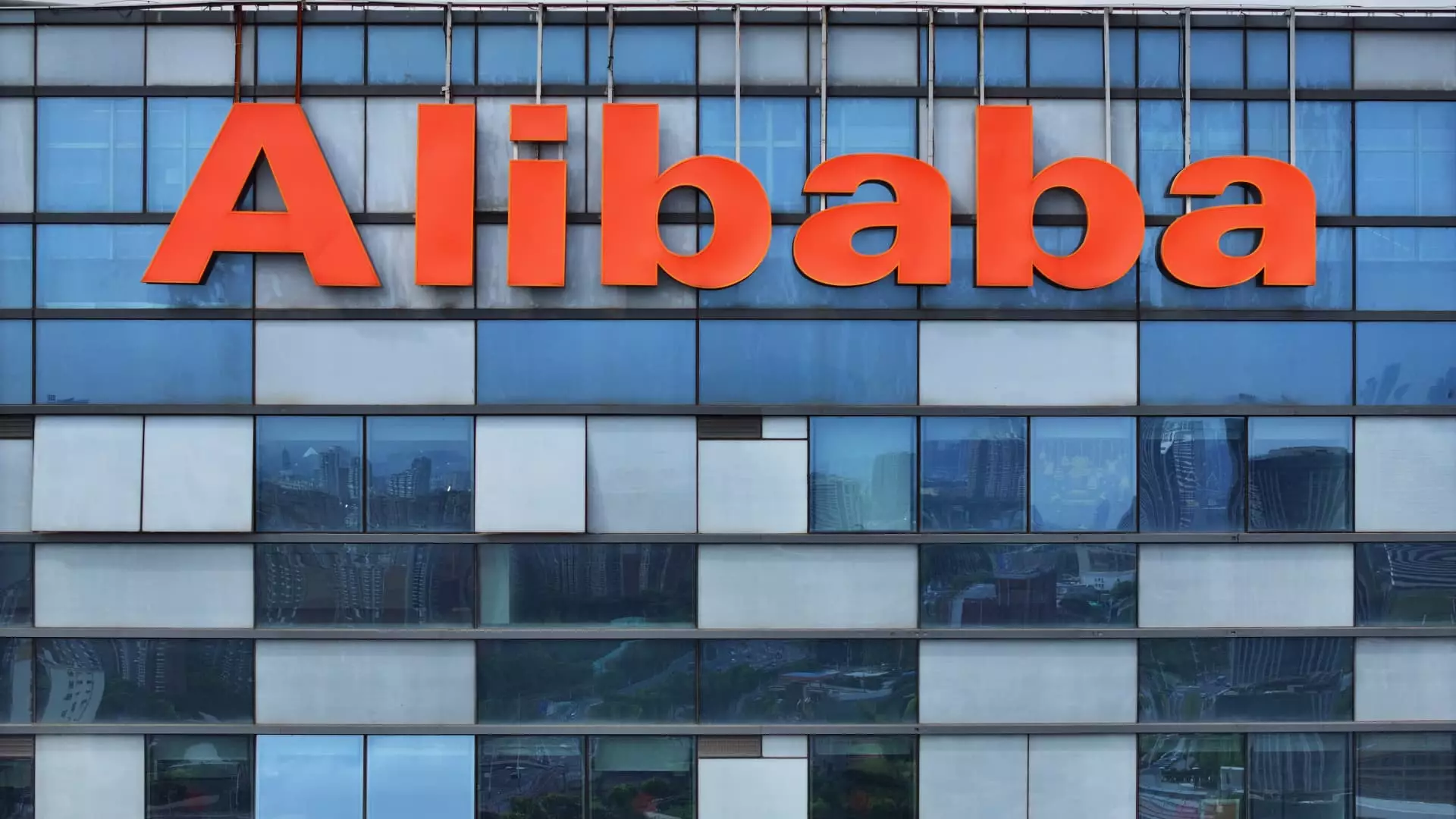Alibaba Group Holding Limited has recently captured the attention of investors and analysts alike, as shares surged in Hong Kong following impressive quarterly earnings. The company’s growth driven by its e-commerce and cloud intelligence arm has rekindled optimism in a beleaguered Chinese tech sector that has faced regulatory challenges and economic headwinds in recent years. This article will analyze Alibaba’s position, decipher the implications of its latest financial results, and explore the strategic direction the company seems to be taking in the evolving landscape of technology and commerce.
In its quarter ended December 31, Alibaba reported a staggering net income of 48.945 billion yuan (approximately $6.72 billion), exceeding the LSEG forecast of 40.6 billion yuan. This performance marks a dramatic increase compared to the same period last year, where profits stood at 14.4 billion yuan. Alongside this impressive income, the company’s revenue of 280.15 billion yuan also outstripped investor expectations of 279.34 billion yuan. This solid financial footing underscores Alibaba’s robust operational resilience in a period marked by economic uncertainty.
Such results are particularly noteworthy in light of Alibaba’s ongoing efforts to recover from a series of regulatory crackdowns that began in late 2020. Analysts are now speculating whether this financial resurgence can be sustained in the coming quarters, especially as early indicators suggest that e-commerce growth is heading toward stability, partly bolstered by supportive government policies aimed at stimulating consumer spending.
The Chinese government’s recent commitment to allocate 300 billion yuan (around $41.5 billion) towards stimulating consumption through trade-in subsidies has significant implications for companies like Alibaba. With local enterprise and consumer activities being crucial to long-term sustainability, these measures are anticipated to enliven the domestic marketplace and cultivate a favorable environment for e-commerce players. Nomura, an investment bank, pointed out that the outlook for Alibaba’s e-commerce segment is expected to remain strong in the first half of the upcoming calendar year, benefiting from the discussed subsidies.
This proactive stance by the government may additionally represent a turning point, as it suggests a broader goal of revitalizing the economy while fostering growth in tech enterprises. As Alibaba remains a bellwether in the tech ecosystem, its recovery could provide a template for other companies seeking resilience in a rapidly shifting market.
A salient theme emerging from Alibaba’s latest strategies is its intensified focus on artificial intelligence (AI) and cloud services. The company recently launched the Qwen 2.5-Max, its flagship AI foundation model, which has seen substantial demand—accounting for nearly 70% of recent inquiries. Analysts at Barclays have highlighted the pivotal role these technologies will play in Alibaba’s future, suggesting that the next three years will mark a significant investment phase for the company in AI and cloud infrastructure, potentially exceeding the cumulative spending of the past decade.
Such investments not only position Alibaba as a competitor in the AI sphere but also reflect broader trends within the technology sector where cloud computing and AI capabilities are increasingly crucial for competitiveness. In a climate where digital transformation is accelerating, Alibaba’s commitment to heavily invest in these areas could yield promising dividends.
The overall sentiment surrounding Alibaba has shifted positively, indicated by the recent surge in stock prices. Shares jumped over 11% in response to the quarterly results, demonstrating strong market confidence in the company’s trajectory. This newfound enthusiasm is further fueled by a notable engagement from Alibaba’s founder, Jack Ma, who participated in a rare meeting with Chinese President Xi Jinping, where the importance of private enterprises was emphasized.
While uncertainties remain, especially given ongoing geopolitical tensions and regulatory scrutiny, the combination of solid financials, government support, and a forward-looking investment strategy may suggest a renewed era of growth for Alibaba. Moving forward, stakeholders will be keen to see whether the momentum can be maintained and if Alibaba can navigate the complex landscape to secure its place in both the local and global markets amidst this evolving technological frontier.
Alibaba’s recent results could signify a critical juncture for the company, presenting ample opportunities amidst challenges, setting the stage for further developments in the tech industry, and influencing the direction of e-commerce in the years to come.


Leave a Reply